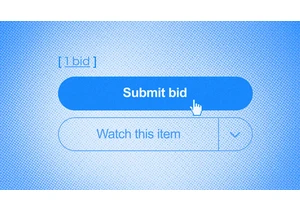I vividly remember signing up for then-presidential candidate Barack Obama’s text campaign so that I could be “one of the first people” to receive his announcement about his vice-presidential choice. Fast forward to 2020, and that very same Joe Biden was running for president while COVID-19 was shutting down the world. COVID-19 forced everyone to redefine the nature of political campaigning and turned it into a digital affair. Not being able to host events, go door-to-door, or meet in person turned all conversations into digital interactions. In the political space, organizations turned to texting as the go-to touchpoint for voter connections, hoping that genuine conversations could be sparked from a text message. However, after the most recent election bombast, the last thing you may want is to receive dozens more “Have you mailed in your ballot?” or “Will you give to my campaign?” texts this cycle. Voters receiving texts from candidates and parties during election years is not a recent development. Peer-2-peer texting began booming in political spaces back in 2016, due to a gray area in the Telephone Consumer Protection Act. The TCPA was created to stop robocalls and autodialers, and it prohibits all calls and text messages made with such technology unless the recipient expressly consented to them. However, texting companies were able to exploit ambiguity in the language of the legislation, allowing campaigns, organizations, and movements to continue sending texts to anyone they had a number for by simply having a human press “send” on every message. These groups loved the reach and impact of texting, and it quickly became the top political outreach tool. Mobile phone carriers, however, were not happy with the volume of political spam texts being sent to their customers—or the number of lawsuits that followed. As a result, they are now trying to make the gray area of TCPA clear through a system known as 10DLC. From Facebook ads to the rise of NFTs as a fundraising method, campaigns have long been receptive to new technology.10DLC, or 10-Digit Long Code, is the method by which texting platforms send messages to you from 10-digit numbers. It is not legislative policy; rather it is the mobile carrier’s way of regulating the text messaging space in response to their customer’s oft-voiced frustration with the number of spam texts received. 10DLC allows organizations to send Application-to-Person messages via standard 10-digit phone numbers. It requires political campaigns to complete a campaign registration for their entity and each text campaign via the Campaign Registry. Unregistered campaigns will be subject to delays, rejection of their messages, and/or fines, making voter identification and engagement look very different from political cycles of the past. From Facebook ads to this year’s rise of NFTs as a political fundraising method, political campaigns have long been receptive to new technology and innovative ways to engage with supporters. However, with great technology comes great responsibility, and political campaigns and vendors have not always been the best at ensuring that such engagement does not come at the cost of your privacy. The abuse of texting technology, in particular, has resulted in many cell phone users receiving long text messages, late at night, “from” a candidate in a state where they’ve never even cast a vote. The continuation of these messages over the years has led to an uptick in complaints, opt-outs, and meaningless text messages sent across the political landscape. Mobile carriers are hoping 10DLC will put an end to these issues. The policy is already having an impact. It has forced political campaigns and organizations to focus on strategizing unique ways to get supporters to opt-in to text campaigns, made removing people from their texting lists a priority, and compelled them to be more considerate about the frequency and length of text messages sent. Far from being a burden, these considerations all support healthier voter engagement and more meaningful interactions. On March 1, the carrier fee increase for unregistered text messages will increase. Stakeholders, such as Subtext, the political messaging platform where I lead partnership work, are still sorting out the full impact of 10DLC on political campaigns in general, and this midterm cycle in particular. If the past few months have been any indication of what is to come, we will see fewer political spam messages and a pause on extensive peer-2-peer texting programs. Consumers can expect opportunities to have genuine conversations with the campaigns and candidates they care about, and will likely see a boost in campaigns using creative ways to get voters to proactively hand over their phone numbers. One thing that’s clear, texting platforms will still look for ways to help their clients connect with you while mobile carriers will continue to close any loopholes that protect their customers’ privacy.
Grace A. Lowe leads the political partnership work at Subtext, a platform that works with political organizations to connect with their communities via text messaging.
Autentifică-te pentru a adăuga comentarii
Alte posturi din acest grup

When Xpeng Aeroht, an offshoot of Chinese EV startup Xpeng, showed its flying concept car at the Bangkok auto show last year, it turned heads. Now the Chinese startup is ready to take to the skies


Meta is testing a feature that will let Facebook users browse eBay

“Okay it’s happening… are we switching to Lemon8 or what’s the plan?” posted one TikTok user back in December. Wi

Meta said Wednesday that it will allow some Facebook users to view eBay listings on its Marketplace service, as it tries out a possible way t

Over the past 17 years or so, I have happily paid for hundreds of e-books—everything from reference works to history to novels to comics. Having immediate access to all of them on a device that fi

